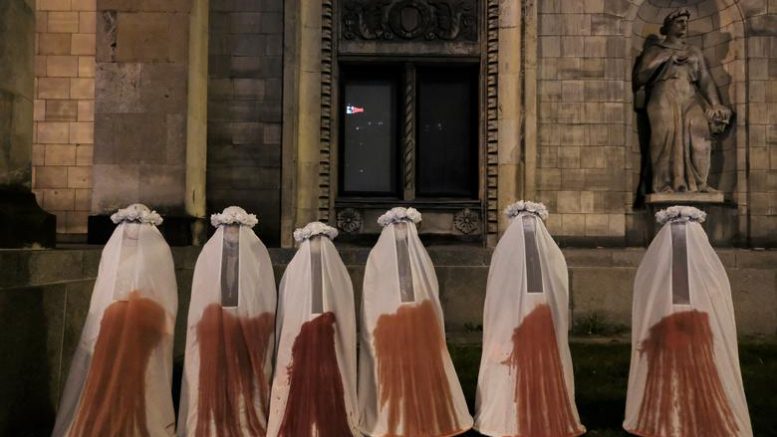A ruling forbidding almost all abortions has triggered an uproar from protesters across the country.
On Thursday, a landmark decree passed in a Polish tribunal that foetal abnormality abortions are now unconstitutional.
Julia Przylebska, the tribunal president, said that abortions of this nature would legalise: “eugenic practices with regard to an unborn child, thus denying it the respect and protection of human dignity… [Terminating these pregnancies is] a directly forbidden form of discrimination.”
In 2019, 1,074 out of 1,110 legal abortions were foetal abortions, with estimations that about 8,000-12,000 women travelled outside the country to have these procedures. With this legislation as an expansion pack to its existing ultra-strict policies, abortion will now only be legal in some cases of rape, incest or if the mother is at risk of death.
Moreover, a pandemic that restricts travel (leaving Polish women stranded with an oppressive administration) was the extra push needed for floods of protesters to storm the streets.
Thousands and thousands of people are screaming slews of anti-government chants and blocking the main roads and bridges. The group responsible for these actions, the Women’s Strike, has coordinated protests in more than 150 cities with sister protests around Europe.
Watch as protesters rally outside the Polish embassy in London on Monday chanting and emotionally decrying the Polish government.
In Warsaw, some activists had even disrupted church services in retaliation to the Catholic church’s sway in their nation’s politics. Jarosław Kaczyński, a rightwing Polish politician and lawyer, called for the defence of churches saying: “We must defend Polish churches, we must defend them at every price.”
In 2016, he said: “We will strive to ensure that even in pregnancies which are very difficult, when a child is sure to die, strongly deformed, women end up giving birth so that the child can be baptised, buried and have a name.”
The Commissioner for Human Rights on the Council of Europe said: “[Thursday was] a sad day for women’s rights.”
Removing the basis for almost all legal abortions in #Poland amounts to a ban & violates #HumanRights. Today’s ruling of the Constitutional Court means underground/abroad abortions for those who can afford & even greater ordeal for all others. A sad day for #WomensRights.
— Commissioner for Human Rights (@CommissionerHR) October 22, 2020
Words: Maelina Hassel | Subbing: Sara Guadrini

